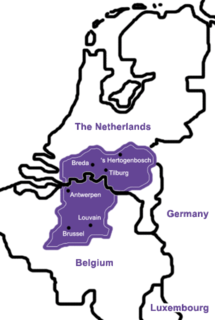A Quote by C. S. Lewis
We reduce things to mere Nature in order that we may "conquer" them.
Related Quotes
They [the New World Order] want to reduce the population [to 500 million] and their target date is May 5th of 2000. [.....] The demons who call themselves spirit guides have told them. "You know, you have to reduce the population by May 5th." Because May 5th is Karl Marx's birthday, you know, enter the Age of Aquarius. [.....] I suspect they may use Y2K as an excuse to create some little problems here, we shall have to wait and see.
The romantic view of the natural world as a blissful Eden is only held by people who have no actual experience of nature. People who live in nature are not romantic about it at all. They may hold spiritual beliefs about the world around them, they may have a sense of the unity of nature or the aliveness of all things, but they still kill the animals and uproot the plants in order to eat, to live. If they don't, they will die.
All material Things seem to have been composed of the hard and solid Particles ... variously associated with the first Creation by the Counsel of an intelligent Agent. For it became him who created them to set them in order: and if he did so, it is unphilosophical to seek for any other Origin of the World, or to pretend that it might arise out of a Chaos by the mere Laws of Nature.
When I met Akira Kurosawa in Japan, one question he asked me was, "How did you actually make the children act the way they do? I do have children in my films but I find that I reduce and reduce their presence until I have to get rid of them because there's no way that I can direct them." My own thought is that one is very grand, like an emperor on a horse, and it's very hard for a child to relate to that. In order to be able to cooperate with a child, you have to come down to below their level in order to communicate with them.
I learned in America a long time ago, the three R's, the principle of three R's - reuse, reduce, recycle. And as I say those words, there are so many things individually we can do to reduce - we don't need to consume as much as we are consuming. Reduce. And by reusing, we can reuse a lot of things we just throw into the dumpsite. And reduce the production. The more we reuse, the more we can reduce.
Anger is a little thing. Hate is a little thing. Order is a little thing. Each of these little things has a major impact on the big picture. Right thinking, right action, and right response to the little things will help us conquer the big things, like injustice, inequality, poverty, and disorder. Until we are each able to conquer and master the little things in our lives, the big things will remain undone.
To the scientist, nature is always and merely a 'phenomenon,' not in the sense of being defective in reality, but in the sense of being a spectacle presented to his intelligent observation; whereas the events of history are never mere phenomena, never mere spectacles for contemplation, but things which the historian looks, not at, but through, to discern the thought within them.
It may be observed, that provinces amid the vicissitudes to which they are subject, pass from order into confusion, and afterward recur to a state of order again; for the nature of mundane affairs not allowing them to continue in an even course, when they have arrived at their greatest perfection, they soon begin to decline.
The sciences that purport to treat of human things -- the new scientific storyings of the social, the political, the racial or ethnic, and the psychic, nature of human beings -- treat not of human things but mere things, things that make up the physical, or circumstantial, content of human life but are not of the stuff of humanity, have not the human essence in them.




































